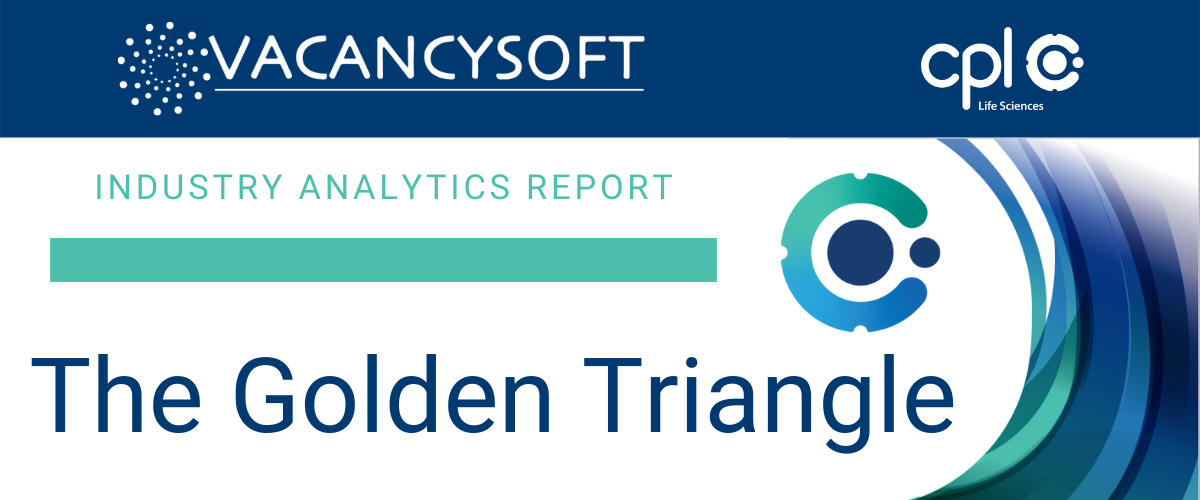Each month Cpl Life Sciences in collaboration with Vacancysoft delivers an overview of different areas of UK workforce trends within life sciences. Our current report focuses on the talent trend across the Golden Triangle of life sciences: London, Cambridge and Oxford.
The inspiring element of the Golden Triangle is seeing how fast-growing well-invested biotechs are clustering around our great academic institutions. When a well-renowned giant from the industry like Novartis announces its plans to move its UK HQ to London’s White City, so it can be next to the Imperial College campus, you can see how this plan continues to make sense and grow.
To nucleate regional clusters in this way creates powerful hubs, allowing work with key stakeholders, delivering local strategies whilst attracting and nurturing highly innovative businesses. This goes on to create high-value jobs and attract inward investment whilst all of the time adding significant value to the wider regional, national and international life sciences ecosystem and delivering wide-ranging social and economic benefits to the UK. So with London we clearly see a broader trend and acknowledgement by global pharma companies that it is academic researchers and start-ups that are driving the field forward and, with that, proximity matters.
Oxford shows R&D talent resourcing continues to lead the way in terms of overall recruitment. Vacancies grew by 83.9% between 2021 versus 2020. And as we review 2022 so far, we have seen an uplift of 25% YTD versus last year in the requirement for R&D talent, which now totals 44% of all life science vacancies in Oxford. The blip for Oxford in 2021 came via a significant surge in clinical vacancies, up by a staggering 362.5% versus 2020. This has continued into 2022, at 21.6% so far.
The real challenge for Oxford is that the city is nearly four times smaller than Cambridge in terms of population. This will be a developing issue for Oxford in gaining the talent required to keep up with the growth. In terms of Cambridge, the key will be continuing to generate funding from VC and government alike. Cambridge also continues to build significant new buildings to accommodate growth.
Whilst grim predictions were forecast post-Brexit, the unique nature of the NHS, in terms of how patient data can be used for clinical trials, combined with the fast-track process being introduced with the MHRA, means the UK continues to be a competitive place for life sciences.
For the full report click here
Yvette Cleland - CEO | Cpl UK
